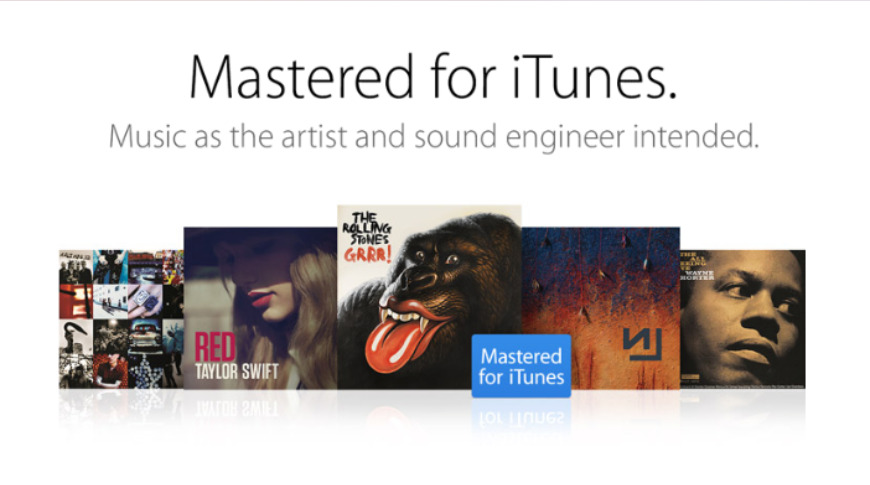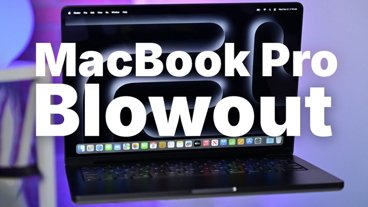Building on its previous 'Mastered for iTunes' program, Apple Music has a new initiative to promote the creation and sales of higher-quality songs on its service.
Apple Music has launched a new initiative called Apple Digital Masters, which is intended to bring all of the service's highest-quality recordings into a single place. These are currently the tracks that have been produced using Apple's free Mastered for iTunes tools.
According to Billboard, this is the first public acknowledgement of a plan that has been underway for some time.
Reportedly, Apple says that the 75% of the current US Top 100 tracks — and 71% of the worldwide Top 100 — are already Apple Digital Masters.
The Mastered for iTunes program gave producers and musicians drag-and-drop Apple Audio Mastering Tools that let them preview how their music would sound after it's been encoded for Apple Music.
The news of the new push to expand the use of this facility comes after rival service Tidal announced it was providing 'master-quality' tracks.
It's also likely that the move to Apple Digital Masters is because Apple is stepping away from using the term iTunes in favor of Music for its forthcoming macOS Catalina.
 William Gallagher
William Gallagher








 Malcolm Owen
Malcolm Owen

 Amber Neely
Amber Neely




 Oliver Haslam
Oliver Haslam


-m.jpg)






16 Comments
I would like to see Music replace all artists, albums, and songs in my Music library with the HiRes / Apple Digital Masters versions automatically. Glad there is competition out there (Tidal) breathing down Apple's neck. What I hope is not the case is that Apple only adding titles on a go-forward basis and limited to Apple Digital Masters. Many people including myself are streaming to higher end audio systems in the home and using HomePods as well, these systems benefit from higher quality streams and audio files/formats. The long standing argument by some that higher quality audio formats were not needed because people were using inferior playback devices such as BT speakers, Airpods, and headphones (Beats) along with the environment that they were listening in were not justified should be put to rest. Obviously Tidal, HD Tracks, record labels, Qobuz and now Apple to name a few have realized that there is a market and demand for higher quality music.
One question:
I will never understand why they are so late in this direction, which is the obvious way to go, whereas they have they have all necessary ingredients, know how, resources, etc ... to make it work (and indeed, for this reason, I have too subscribed to Tidal).
The reality is that most people don't give a crap and even if they did and in spite of what Mobird says, most people are not listening on high quality audio systems (and IMO, Home Pod is far from a quality audio system). So based on the systems most people have, IMO (as an ex-recording engineer), there will be no perceptible difference. But for those who do have better systems, the question is what is Apple's process? Is it higher bit rate, higher resolution, uncompressed? For all we know, it could be nothing more than a slightly higher bit rate and some EQ and compression algorithm that someone at Apple decided sounded good. IMO, most of today's recordings out of ProTools sound like crap anyway - artificial and tremendously over-level compressed so everything sounds too loud without dynamic range and excessively harsh.
The other issue in these discussions is what is the source file, especially for older recordings. Because the source file used is going to be the highest quality one can achieve. If one takes a CD Redbook 44.1/16 recording and remasters it to 96/24, it doesn't improve the quality one bit (sic). And we've learned recently that the big fire at Universal some years ago and an earlier fire at Atlantic has destroyed thousands of multitrack and 2-track masters of classic recordings, so we can never get back to original quality again for those albums. Only existing current duplicating masters can be used and in the cases where those no longer exist, new masters will be made from CD's.
AAC is already pretty good. I wonder if in a blind A-B test, very many people could tell the difference between AAC and whatever Apple is now doing or Tidal.